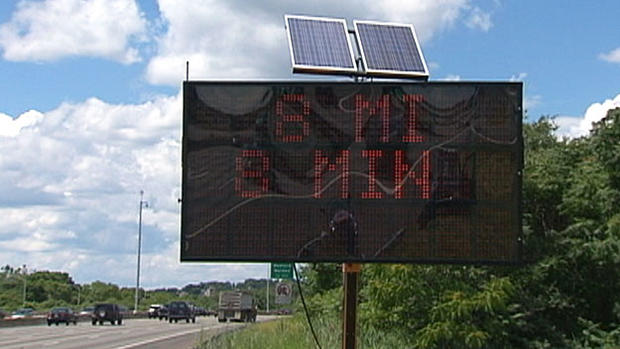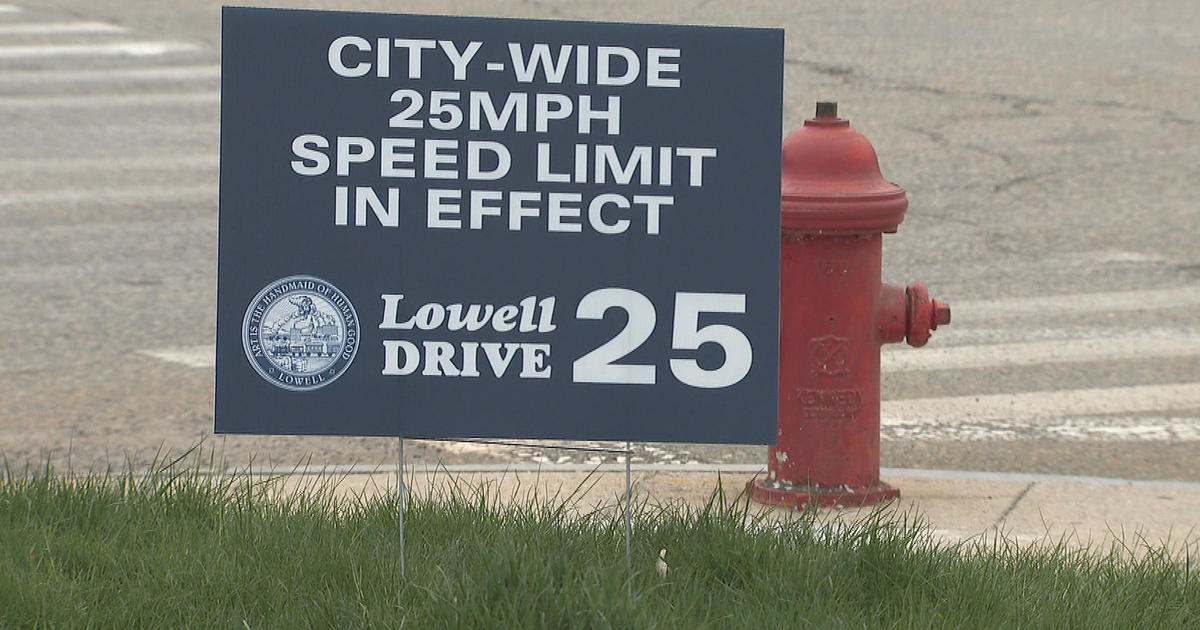Massachusetts To Install Permanent Travel Time Signs Across State
BOSTON (AP) — Real-time traffic data that tells drivers how long it will take to reach their destinations will soon be available on key state highways, Gov. Deval Patrick and transportation officials announced Friday.
A $17.5 million project calls for placing 132 permanent electronic travel time signs on 678 miles of roadway across the state, officials said. They will replace several dozen temporary signs now in use.
Officials planned to flip the switch on the first permanent signs on Route 6 on Cape Cod on Friday and will expand statewide, wrapping up by the end of 2015.
"Traffic is always a little bit more manageable when you know how long it's going to take to get from point A to point B," Patrick said.
The signs anonymously track Bluetooth-enabled devices carried by motorists and their vehicles in real time to estimate how long it takes to travel between two locations. The system complies with new federal legislation that requires real-time traffic information be provided to the public.
The federal government is paying 80 percent of the tab for the project, dubbed GO Time, officials said.
WHERE WILL THEY BE FOUND?
After the first signs go up on Route 6, in advance of the busy summer tourist season on Cape Cod, the next stretch of highway to have the signs installed will be Interstate 91 from the Connecticut border to Northampton.
Other locations will include Interstates 93, 95 and 495; Interstate 195 in the South Coast; Route 290 through Worcester; Route 24; Route 3 from Burlington to Nashua, New Hampshire; portions of Route 2 and Routes 1 and 1A; and the entire Massachusetts Turnpike.
The original plan only called for signs from Boston to Chicopee on the turnpike, but Patrick, who owns a vacation home in the Berkshires, declared Friday that he wanted them all the way to the New York border.
The signs will be strategically positioned near highway exits so travelers can choose to change their route if wait times are too long.
Drivers can adjust their schedule, call home, seek an alternate route, or phone the office to let their co-workers know they will be a little late or early, said Richard Davey, the state's transportation secretary.
The information will also give traffic planners "actionable data" that can be used to help ease tie-ups in areas where there is chronic congestion, Davey added.
Officials are also hoping to use the data to reach out to employers to see if they can offer their workers more flexible schedules to let them to come into work a little earlier or later depending on the traffic situation.
The real-time information will also be shared with Web and smartphone app developers, officials said.
___
Associated Press writer Bob Salsberg contributed to this report.
Copyright 2014 The Associated Press. All rights reserved. This material may not be published, broadcast, rewritten or redistributed.
MORE LOCAL NEWS FROM CBS BOSTON




